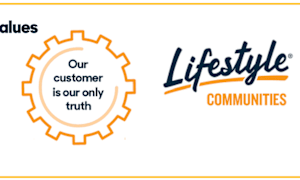I speak to many village professionals on a weekly basis and in recent weeks I’ve picked up a change in tone from panic to calm, to a sense of weariness.
After months of changed working environments, having to adapt and adapt again and continually stretching both personal resources and finances village teams are becoming weary.
A conscious understanding of how you and your team are responding to this crisis/pandemic is vital.
As my great colleague at Human Psychology Samantha Young most recently shared, “We all respond differently to crisis. Some of us switch into ‘action’ mode and become more transactional in how we interact with others. Some of us go quiet and withdraw.”
So how can you be supporting your team and importantly yourselves amidst this ongoing uncertainty?
Samantha offered the following options that focus on the basic human needs of fulfillment, belonging and security.
Make your community a safe place to work
Are your employees concerned about the cleanliness of the environment they are working in?
Make sure you have appropriate reminders and resources to reinforce guidelines around cough/sneeze etiquette (into a tissue or elbow), social distancing reminders, hand washing practices, and staff not coming into work when they feel ill.
Update policies and procedures
Having clear policy and procedures to deal with work in a pandemic situation is vital.
Are you able to accommodate flexible working arrangements? If so what are the parameters around that? Will you be encouraging your team and self to have more regular annual leave?
Do you need to review KPI’s and performance measures?
What additional policy do you need to encapsulate the emergency management act regulations and restrictions – recording of temperature, tracing records (i.e. physical contact with others), hygiene requirements, laundering of uniforms, etc?
Also, consider what new forms of communication policy needs to be in place? Considering things like media responses and use of electronic messaging ahead of time can save a great deal of stress.
Leadership
Do what you can to take the pressure off your teams.
Recognise that we are all human and that we will all be more distracted right now.
Set expectations about failure, uncertainty, and interdependence. Ask people to speak up.
Here are some conversation starters:
- We’ve never faced anything like this before so there are a lot of gaps in what we know.
- We need to hear from everyone. If you’re worried, please speak up.
It’s also important to practice active, frequent and honest communication and keep everyone informed about important issues and changes. Try to host gathering/meetings sometimes without an agenda with no order of business but to share feelings or concerns.
Mental health
Revisit how and what you can do to support your teams and own mental health.
Does everyone know how to or need to be encouraged to access the Employee Assistance Program? Share local mental health service details.
Normalise the conversation around mental health and well-being in team meetings and offer opportunities for suggestions around how to assist each other during this time.
Be a little more conscious and sensitive of the impact the crisis maybe having on out of work life. Many staff are unsettled or uncertain during this time, so it is important to ensure everyone feels safe, informed, and supported.
Caring during a crisis
In times of crisis, every interaction we have is telling a story about our leadership.
Being vulnerable is one of the most courageous things you can do as a leader. Engagement is going to require concerted effort and attention from leaders to build and retain trust and engender a sense of purpose and worth in their teams.
Samantha shared, “Leading during COVID-19 will require sustained energy in the face of disappointment. Passion to try again and persistence to press through obstacles. Boldness during uncertainty and endurance when it is tempting to quit.
“Belief precedes hope so give people something to believe in. Connect effort and sacrifice to the big picture. We are in for a long and bumpy ride through COVID-19. Now more than ever, we need brave leaders, dealers of hope, who can inspire, engage and genuinely care”.
If you need support don’t hesitate to reach out to the DCM Institute team at dcmi@thedcmgroup.com.au.










